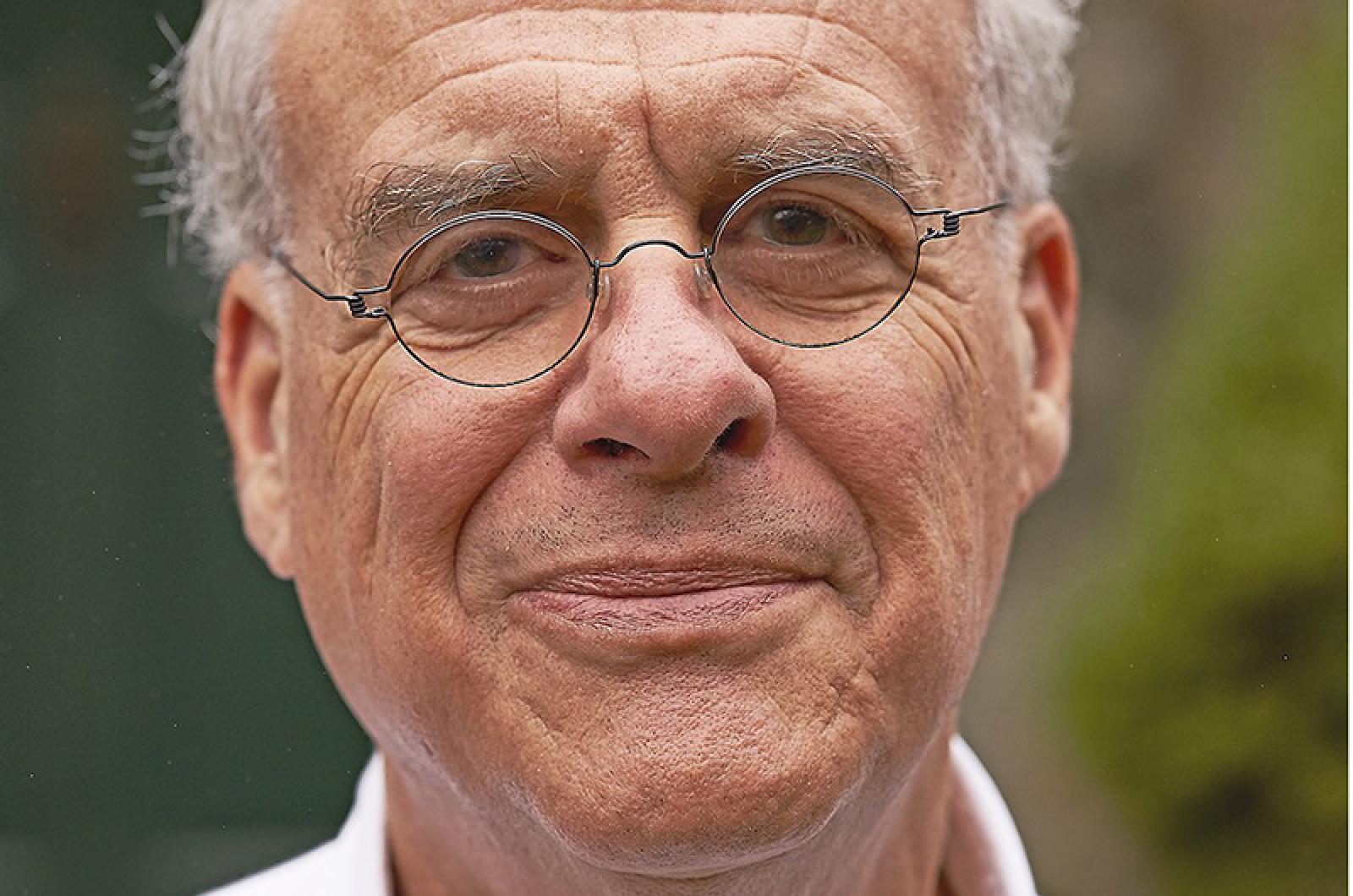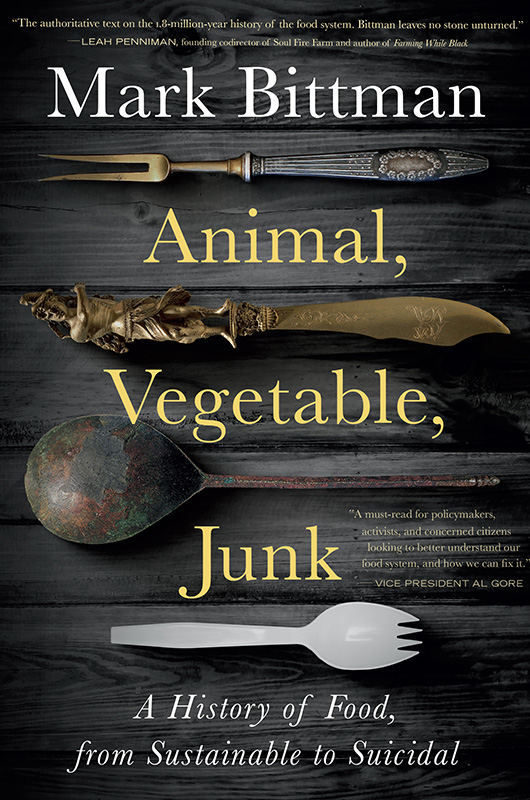Mark Bittman is the author of more than 30 books, including the familiar yellow-covered household staple How to Cook Everything. But that doesn’t mean his appetite for writing about food is waning. In fact, it’s getting bigger. The subject of his latest book is a comprehensive history of food, from the dawn of man to the present day.
“[As] I was seriously considering food, it became more and more clear to me that food was about much, much more than cooking and enjoyment and travel and cool ingredients,” Mr. Bittman said. “I was increasingly thinking about the environment, food and labor, food and animal welfare, food and climate change and nutrition, and I started pushing editors at the [New York] Times to let me write about those kinds of things...and that led to the book.”
Animal, Vegetable, Junk: A History of Food, from Sustainable to Suicidal, charts the history of food from early man and the time of the hunter-gatherers up through the present day landscape of industrial farming and junk food. Mr. Bittman puts the invention of agriculture as the central catalyst — and in many ways, the original sin — of the story.
“I think it’s clear that there are decisions that were made around food, especially in the last 500 years, that really affected the development of capitalism, colonialism, slavery, imperialism, and so on. We are still grappling with the effects of that,” he said.
With a deft hand and clear voice, he paints a troubling picture of a broken food system, drawing sharp connections between agriculture and systems of social oppression, illness and perhaps most visible of all, the climate crisis.
Food, Mr. Bittman says, is about much more than what we eat.
“My driving goal was to demonstrate how important food is and to reemphasize how important it is,” he said. “We all know that...we starve to death if we don’t have food but we don’t often think about the impact that agriculture and food processing itself have on the environment, our health, on public health [and] other species.”
Mr. Bittman, who has authored and co-authored at least 18 cookbooks in his life, has spent much of his career out of the kitchen on the writing side of things, working in newsrooms and magazines as a journalist and column writer. The idea for Animal, Vegetable, Junk came in 2011, through a New York Times opinion column he was writing about contemporary issues in food and, specifically, the link between agriculture and climate change. The column was a success but before long Mr. Bittman knew the material demanded more.
“I had this idea that I would just write this series of stories, kind of like a mosaic, and people would come to understand the story of food and the relationship between food and everything else,” he said. “But in fact the mosaic only works when you present everything at once — otherwise it’s just a lot of little broken pieces.”
By 2015 Mr. Bittman was well on his way. Over the course of the next three years, and with extra help from research assistants, he waded deeply into historical texts and essays, gathering as much information as he could, and eventually, putting to paper an epic story of human history.
“The writing itself was not the hard part — the hard part was the all of the background research and putting that together,” he said.
His own journey into the world of food started with writing rather than cooking. In the early 1970s, after graduating from college, he dabbled in fiction writing, legal writing and stories about cycling as he worked to find his footing. He also began to cook and then all the pieces fell into place.
But during the course of his career, his focus has shifted.
“[The] year I turned 50, I had a career and I had an opportunity to make things as meaningful and serious as I wanted to and as fun and frivolous as I wanted to,” he said. “I spent a few years on the frivolous side and then realized that I had gotten into all this in the first place to try to do some good not just for myself.”
Mr. Bittman’s book, which does not hold back in its description of our addled, industrial food system, is also replete with hope. In it, he sketches a vision for a healthy and just system of farming and eating. And he is adamant that a better food system can, and must, exist.
“I can’t see the end game for this any more than someone can say what an anti-racist society might look like,” he said. “The future of humanity is that recognizing that growing food has to be done in ecological manner, and ecology means understanding that the Earth is a finite place.”
There are plenty of ways to get involved, he said, citing the importance of supporting local farmers and getting involved in local government and school boards, as well as larger-scale national political policy.
The Vineyard, with its small size and ample farmable land, is an excellent example of how and where to start, he said.
“On these microcosms, these very small defined Islands, it’s easy to envision a way [to make] them much more self sufficient,” he said. “It’s kind of easy to imagine a way in which the Vineyard could produce a substantial amount of its own food.”
As for what is on the horizon for his work, Mr. Bittman said he is pondering a few projects but food and justice will be front and center.
“Food is to nourish people, to nourish all living things . . . and that needs to come before the answer that food is for profit . . . When we answer that question . . . it’s going to be a big stride.”
Mark Bittman takes part in a panel discussion on Friday at the Martha’s Vineyard Museum with Elizabeth Kolbert and Simon Winchester titled How on Earth?: Land and Our Future. The event begins at 11 a.m. He also takes part in an author talk on Saturday at the Chilmark Community Center with Danielle Dreilinger. The event begins at 12:30 p.m.








Comments
Comment policy »